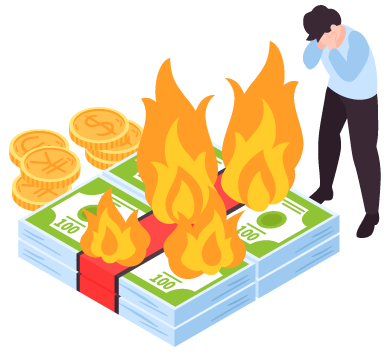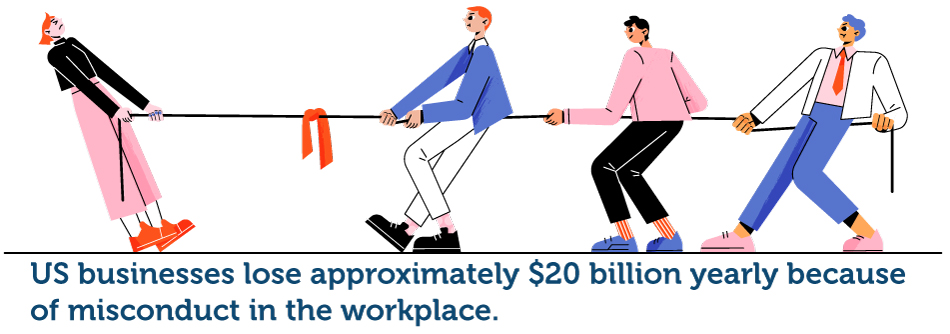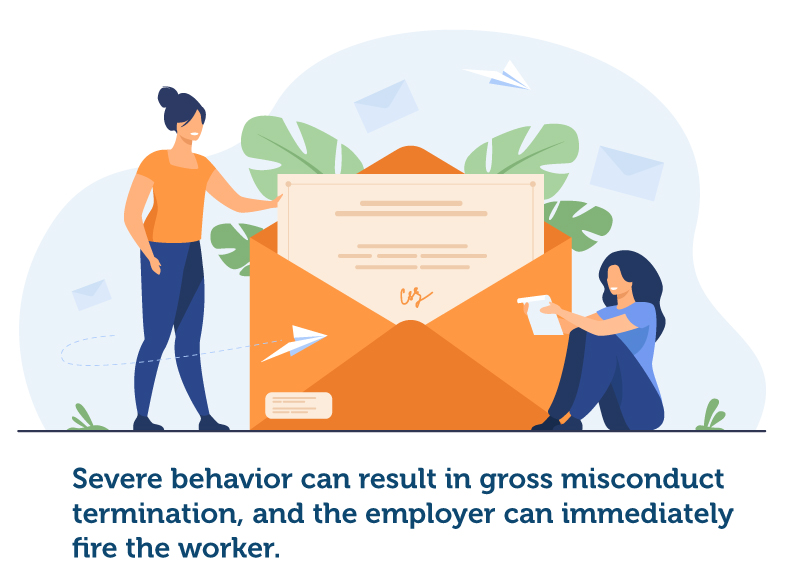Dealing with gross misconduct is an unpleasant experience but requires a lot of care and rule-following. It is essential to follow a fair procedure to protect the company from any legal actions that the employee can take against it.
Usually, there are four steps an employer should take to ensure transparency and adherence to legislation.
1.Suspension
When an employee is suspected of gross misconduct, the employer should first decide whether or not to suspend them. A good reason to do so is if the worker poses a risk to the business, themselves, and others, if they can influence a witness or if they could try and hide evidence against them when they stay at work.
If the employee doesn’t get a suspension, then the employer has to go through a risk assessment to show there is no harm in letting them remain at work.
But, if they get suspended, it must be made clear that a suspension is not a sanction but a way to protect everyone in the company and get enough time to collect evidence on the case.
2. Investigation
The next step should be investigating and finding proof of the employee’s misconduct or lack thereof. The investigator must keep an open mind during the process and properly collect and store the facts.
If the worker is guilty of gross misconduct, the following step is to invite them to a disciplinary hearing. The employee should receive the invitation in written form, detailing the allegations against them.
Make sure that the worker knows they can have a trade union or a colleague representing them and explain to them if they have other rights depending on their employment contract.
3. Disciplinary Hearing
The employer presents the case against the employee at the hearing, outlining the allegations and the collected evidence.
The employee should have access to the evidence to ensure transparency. It is also advisable to have a chairperson and someone to take notes so the process can be included in the records.
Once all is exhibited, the meeting is adjourned while the employer considers all the facts and makes a final decision.
4. Final Decision
Typically, the repercussions of gross misconduct are a final written warning, demotion, or dismissal.
Suppose the employer decides to terminate the employee immediately. In that case, they have to make sure that the severity of the misconduct warrants immediate dismissal and that the decision is fair and reasonable in accordance with the circumstances.







